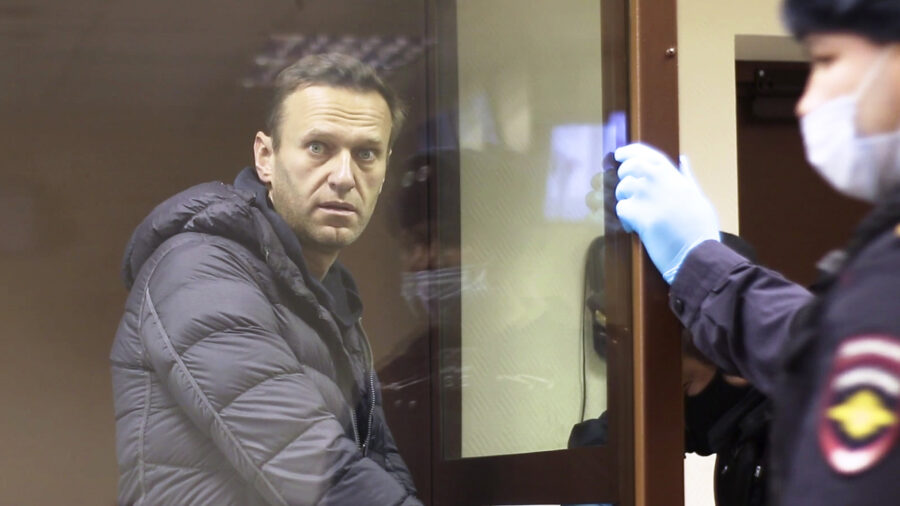MOSCOW—Russia’s Foreign Ministry said Friday it was expelling diplomats from Sweden, Poland and Germany for attending a rally in support of opposition leader Alexei Navalny.
The announcement came as the European Union’s top diplomat told Russia’s foreign minister that the treatment of Navalny represents “a low point” in the relations between Brussels and Moscow.
The ministry said diplomats from Sweden and Poland in St. Petersburg and from Germany in Moscow took part in what it called “unlawful” rallies on Jan. 23. Tens of thousands of people across Russia took to the streets that day to protest the arrest of Navalny, the Kremlin’s most prominent critic.
The diplomats were declared “persona non grata” and were required to leave Russia “shortly,” a ministry statement said.
EU foreign affairs chief Josep Borrell, who met earlier Friday with Russian Foreign Minister Sergey Lavrov, said before the session that “our relations are under a severe strain, and the Navalny case is a low point in our relations.”

Navalny, 44, an anti-corruption investigator and Russian President Vladimir Putin’s most prominent critic, was arrested Jan. 17 upon returning from Germany, where he spent five months recovering from a nerve-agent poisoning that he blames on the Kremlin. Russian authorities have rejected the accusation.
On Tuesday, a Moscow court ruled that while in Germany, Navalny violated probation terms of his suspended sentence from a 2014 money-laundering conviction, and ordered him to serve two years and eight months in prison. The ruling prompted international outrage.
After his meeting with Lavrov, Borell said he had relayed his concerns over Navalny’s jailing and the arrests of thousands of people who demonstrated in his support. The EU official said he also communicated the bloc’s support for Navalny’s release and for an investigation of the August poisoning.
Lavrov, in turn, again accused European officials of refusing to share evidence of the poisoning. The Kremlin has said it won’t listen to Western criticism of Navalny’s sentencing and police action against his supporters.
In the mass protests, many demonstrators chanted slogans against Putin in the largest show of discontent in years. Thousands were detained.
Navalny was back in court Friday for yet another trial—this time on the charge of defaming a World War II veteran featured in a pro-Kremlin video that Navalny slammed on social media last year.

A criminal probe of the politician was opened after he slammed people featured in a video promoting constitutional amendments last year that allowed an extension to Putin’s rule. Navalny called the people in the video “corrupt stooges,” “people without conscience” and “traitors.”
Russian authorities maintained that Navalny’s comments “denigrate (the) honor and dignity” of a World War II veteran featured in the video. If convicted, Navalny faces a fine or community service.
He has denied the charge and refused to plead guilty on Friday. He called the trial a “PR process” aimed at disparaging him.
“The Kremlin needs headlines (saying that) Navalny slandered a veteran,” he said.
The 94-year-old veteran, Ignat Artemenko, took part in the hearing via teleconference. He said he was distressed by Navalny’s comments and demanded a public apology. The judge ordered a recess several hours after the hearing started, citing Artemenko’s health.
By Daria Litvinova

